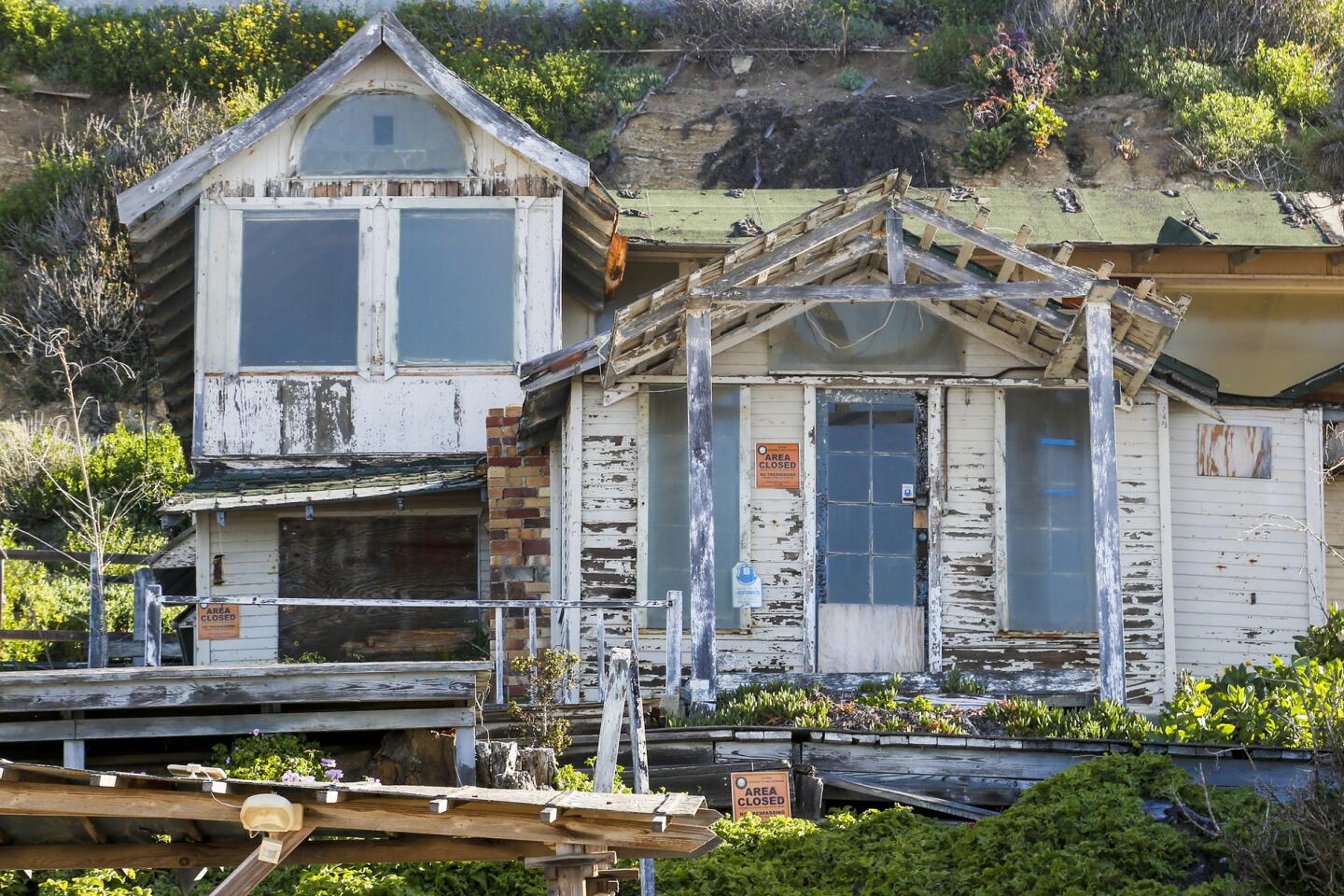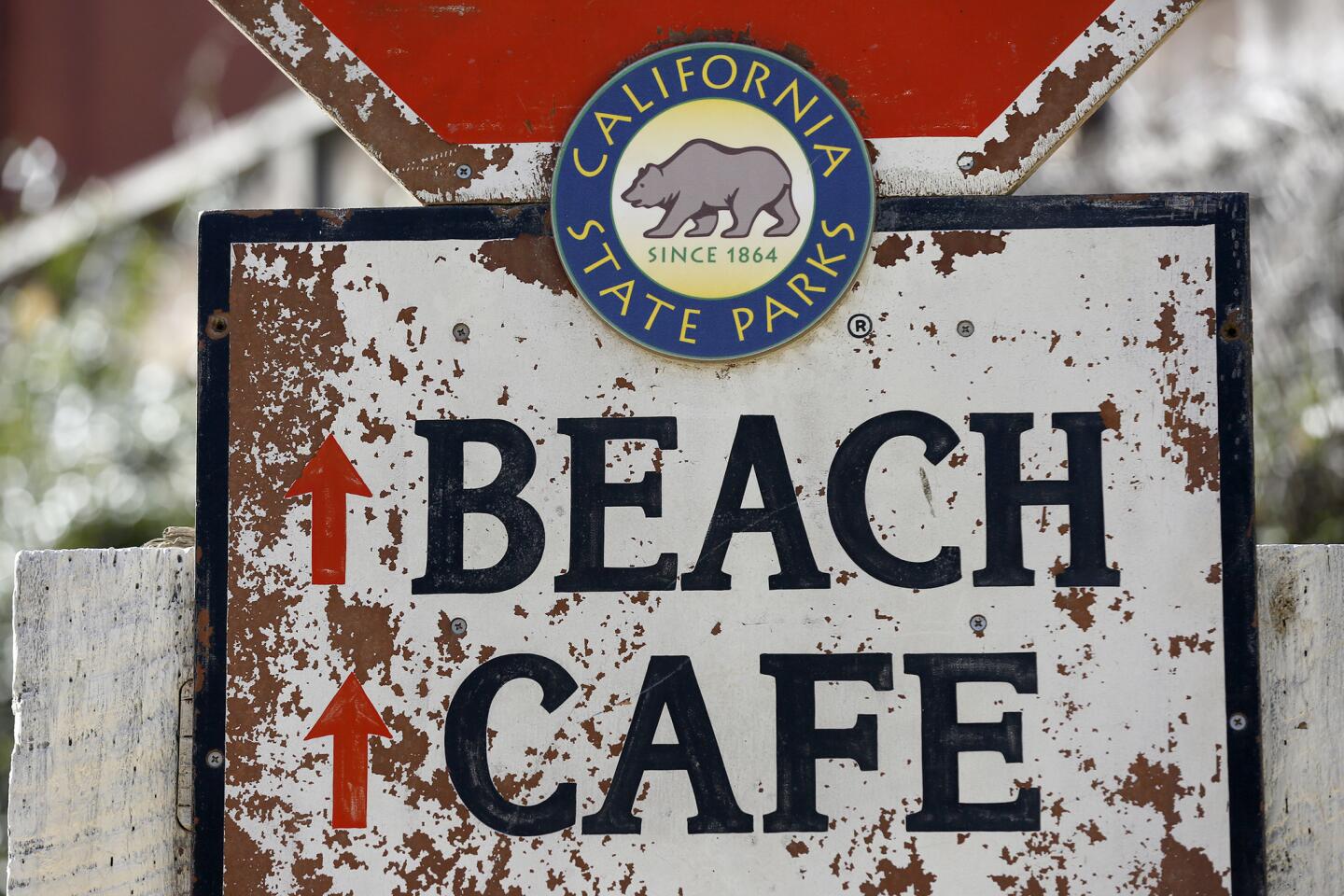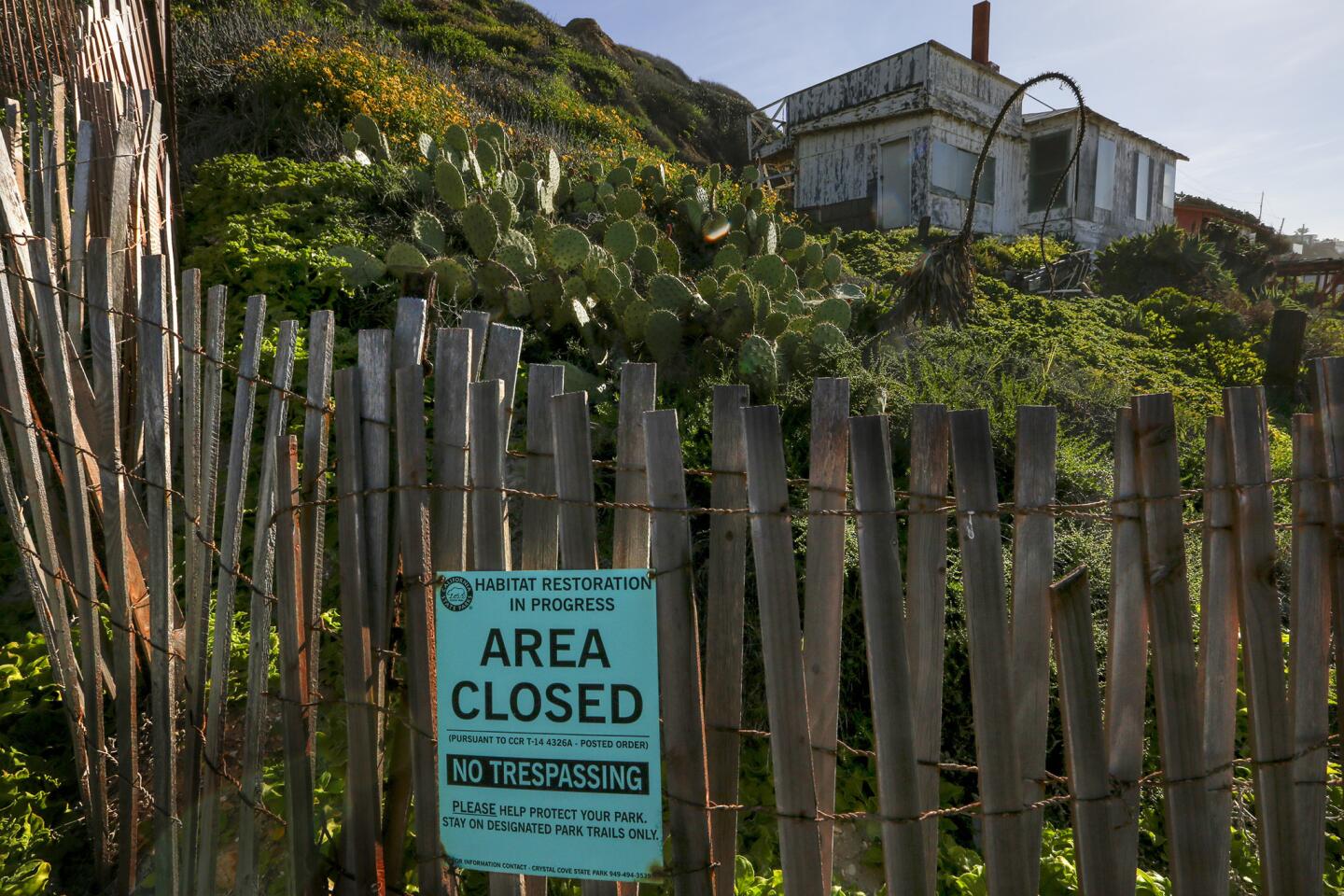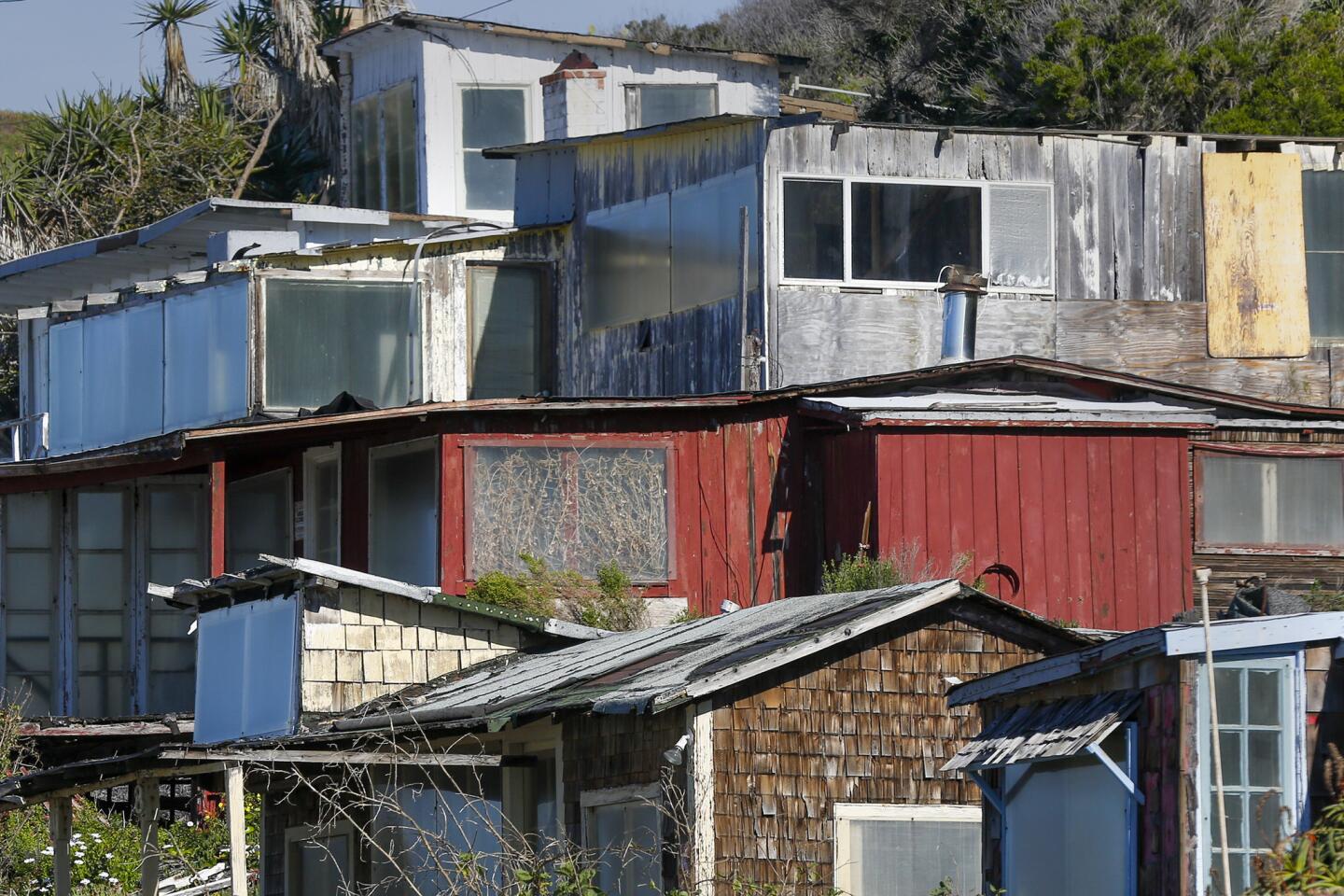Coastal Commission grants permit to renovate the last of 46 beach cottages at Crystal Cove State Park
- Share via
The California Coastal Commission on Wednesday approved a $30-million proposal to renovate the last of 46 oceanfront cottages at historic Crystal Cove State Park in Orange County.
Commissioners unanimously granted a development permit to rebuild 17 dilapidated cottages that will increase low-cost rental units at the park, which occupies a stretch of scenic coastline between Laguna Beach and Corona Del Mar.
When finished, the cottages will help meet the park’s heavy demand for overnight stays and complete a thorough renovation of the Crystal Cove Historic District — a cluster of dwellings considered the last example of a Southern California beach colony from the 1920s.
Because of the persistent efforts of so many, full public access to Crystal Cove has been achieved.
— Susan Jordan, director of the California Coastal Protection Network
“Our organization, California State Parks and the California Coastal Commission have been working together on this project for almost two decades,” said Laura Davick, vice president of the Crystal Cove Alliance, a nonprofit that has worked to preserve the park. “This is the last part of the journey.”
In addition to rebuilding the cottages, the proposed work includes grading, a 650-foot beachfront boardwalk, utility lines, new drainage systems, landscaping, expanded parking and mitigation for environmental impacts.
The renovated dwellings will create 22 affordable rental units, including a dormitory-style lodge. Prices will range from $35 a night for a private lodge bed to $245 a night for the largest cottages that sleep up to 10 people.
Jim Newland, an assistant state park superintendent in Orange County, said the new units will double Crystal Cove’s overnight accommodations.
“The project is a model in itself,” Newland told the commission at its meeting in Ventura. “It protects public resources and provides public access.”
Commission officials said the project will help address increasing concerns that there are not enough affordable accommodations at the beach for low-income families and individuals.
Recent studies by UCLA and San Francisco State show that the cost of visiting the beach and staying there is becoming too expensive for many people, especially low-income people of color who live inland.
Researchers found, for example, that the average Californian is willing to pay about $118 a night for lodging in beach areas. But, according to the commission, a room at a budget hotel along the coast during the summer is $135 to $260 a night.
The commission also reports that since 1989, about 24,720 economy rooms in coastal regions have been lost due to remodels and closures of hotels and motels. Such affordable accommodations now make up only 5% of the available rooms in beach areas.
The state bought the 3.2-mile-long Crystal Cove area from the Irvine Co. for $32.6 million in 1979 and opened it as a park the next year. Today, it has more than a million visitors annually.
The way was cleared for preservation of the beach colony in early 2001 when citizens groups and environmentalists defeated a proposal to build a luxury resort on the site that would have included 73 units, three swimming pools and a 150-seat restaurant.
State officials canceled the project after years of protests and bought back a 60-year lease of the coastal land held by the developer.
“Because of the persistent efforts of so many, full public access to Crystal Cove has been achieved,” said Susan Jordan, director of the California Coastal Protection Network.
The restoration of the first 22 Crystal Cove cottages was completed in 2006. Thirteen became available for overnight visitors, while park operations, education programs and food concessions moved into the other nine. Seven more renovated cottages opened between 2009 and 2011, with five as rental units.
In addition, the current restoration project includes a $1 million endowment for education programs at the park for underserved youth and students. With the cooperation of UC Irvine, classes are offered in marine science, park ecology and environmental studies, including climate change, coastal erosion and sea level rise.
Follow me on Twitter @LADeadline16
ALSO
State finds dozens of violations at Banning Ranch oil field
Yes, California’s drought is all but over, and the dramatically revived Cachuma Lake proves it
When it rains, Los Angeles sends billions of gallons of ‘free liquid gold’ down the drain
More to Read
Sign up for Essential California
The most important California stories and recommendations in your inbox every morning.
You may occasionally receive promotional content from the Los Angeles Times.


















